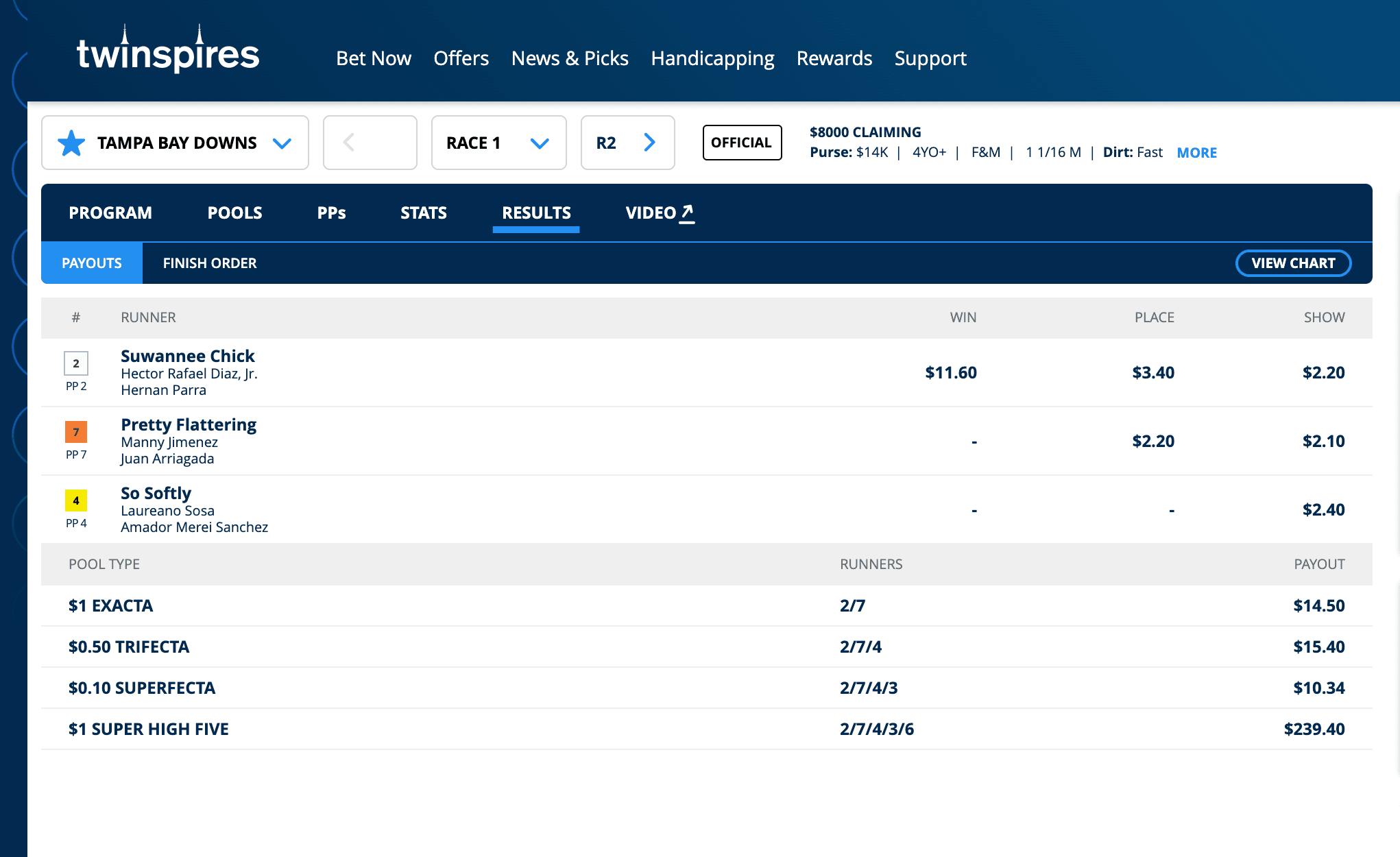Jason Beem's Thursday Column for March 16, 2023

A good Thursday morning to you all! Excited for today’s fifth installment of my little “Six Secrets of Unsuccessful Bettors” series.
As with all these columns, these are simply some observations I’ve made and things I’ve learned. My hope is to just foster a good dialogue about betting and handicapping and be a part of it. These aren’t meant to be lectures, just putting some thoughts out there for you all. Please consult your physician before putting any of these ideas into play. =)
So today’s topic of something unsuccessful bettors do is win/place betting. Although I don’t really support place or show betting in most scenarios, this discussion is meant to talk strictly about win/place betting.
I used to be a big win/place bettor. And I truly believe that most win/place bettors make those bets from a place of fear or “what if?” It’s that comfort of knowing if you take a sick beat or your horse clunks up for second, you’re getting some of your money back and maybe even a small profit.
So if you’re a win/place bettor out there, I hear you. I understand you. I feel your worry. But I also think it’s generally not the way to play. I sometimes wonder if its popularity comes directly from handicapping contests that use it as the scoring and betting mechanism for the contests?
One of my arguments against win/place betting is that you really only benefit from it in the short term if your horse runs exactly second. If your horse wins, you make less than you would have if you had put it all to win on the horse. If your horse runs third or worse, you’ve lost the entire bet anyways.
However, as I wrote in Week 1 of this series, you assign every dollar you bet an earning potential. Anytime you bet a horse to place, you generally are giving it less of an earning potential than if you bet it to win (Smarty Jones 2004 Belmont the rare exception).
Really, the difference in long-term profit comes from whether or not the money made from your horses running exactly second is greater than or less than the money you would have made if you’d just constantly bet it all to win. The wonderful handicapper and writer Marcus Hersh often posts his meet-long stats at the various tracks he 'caps, and he posts them with an ROI on a $2 win bet and the ROI from a $6 bet across the board ($2 to Win/Place/Show for a total of $6).
Every time I’ve ever seen it, the ROI percentage is better for the win and would be a higher yield to just bet to win. I’ve seen other stats folks run the numbers and confirm it. Plus, every pro I know says the same thing. Although, I did have one pro once tell me that just place betting was a long-term profitable move for him.
So how about an example. Here are the payouts from a race at beautiful Tampa Bay Downs from just yesterday. The winner was a 9-2 third choice named Suwannee Chick. The runner-up was the heavy favorite, and the third-place finisher was the clear second choice in the betting.

Tampa Bay Race 1 from March 15, 2023
A $2 win bet on Suwannee Chick got you back $11.60. A $2 place bet on her got you back $3.40. So if you were a $2 win/place bettor, your $4 turned into exactly $15.00. Which is about 5-2 on your money, almost 3-1.
It always cracks me up when people say, “I got a 9-2 shot home” and then post a win/place bet on them that really paid 5-2 or 3-1 on their money. Obviously, betting all $4 to win on Suwannee Chick in this spot would have made you 9-2 and a total of $23.20.
For a $2 bettor, this is a difference of $8.20 and more than a 50% increase over the win/place payoff. If you were a $20 bettor, just move the decimal to the right and you’d have gotten back $150 for the $40 total win/place bet and $232 for betting it all to win.
This example, of course, is a bit drastic because of the big favorite running second. But to me, that’s an important part of why I don’t like the win/place wager, because your place prices can be drastically affected by who else runs in the top two spots. Suwannee Chick was 9-2 to win the race, but she paid only 3-5 to place. Was she really 3-5 to run in the top two of that race?
Another issue I have with place and show pools is that the breakage affects you more in terms of a percentage of your profit (shout-out Kentucky breakage, though!) The example above isn’t the best one, just because it’s a negative show pool because of the big amount on the favorite.
However, the #2 and the #4 were quite close in the pools ($100 more on the #2) and yet the profit on the #2 was exactly half of that on the #4. Instead of making $0.40, you made $0.20. Now twenty cents isn’t a lot in the grand scheme of things, but from a percentage standpoint, that is a lot. And drawn out over a long period of time or with betting much bigger dollars, it’s significant.
I really do think that betting just to win is a better end result for most than betting to win/place. I think adding the place bet to it is a crutch to make you feel safer and more secure even though in the long run it’s costing most people more money or costing them from making more.
Everyone have a great weekend!
ADVERTISEMENT



